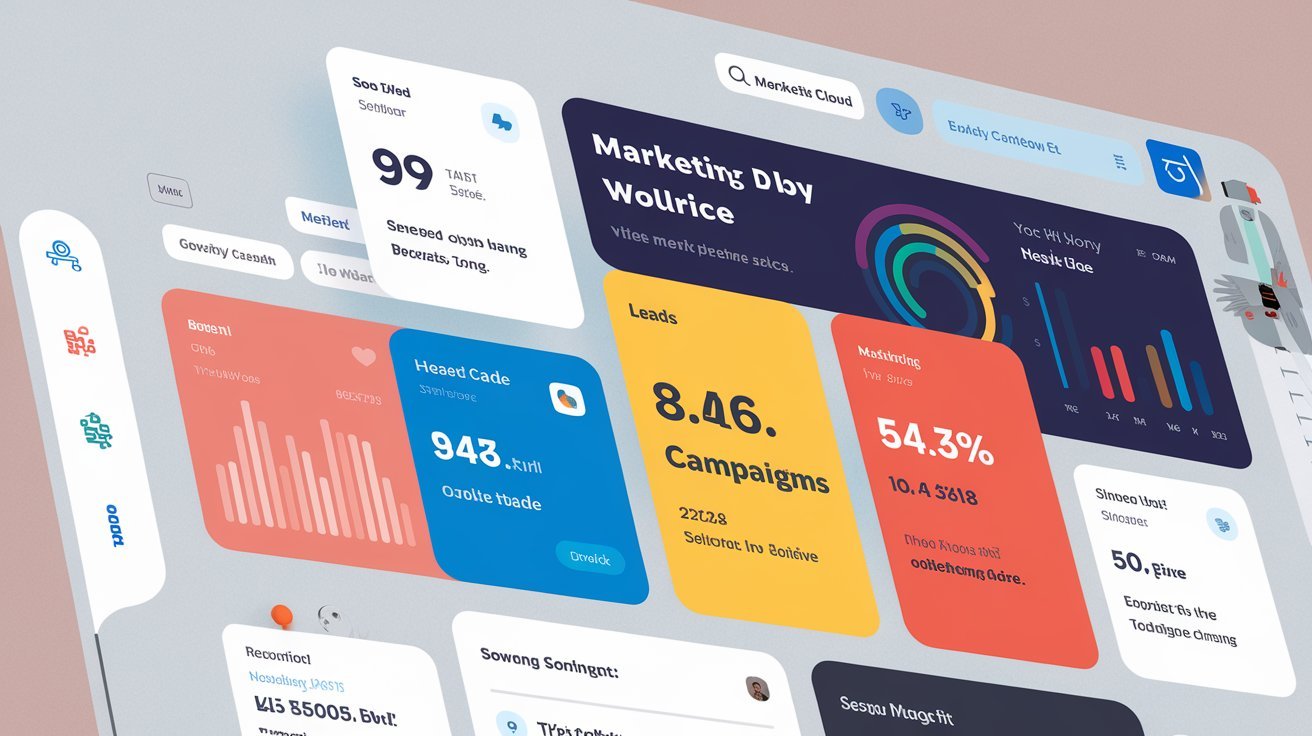In today’s digital landscape, selecting the right marketing cloud software is crucial for business success. This comprehensive guide will help you navigate the complex world of marketing automation platforms and make an informed decision that aligns with your business objectives.
Understanding Marketing Cloud Software
Marketing cloud software is an integrated platform that combines various digital marketing tools and functionalities into a single ecosystem. These solutions help businesses streamline their marketing efforts, automate routine tasks, and deliver personalized customer experiences across multiple channels.
Key Features to Consider
Before diving into specific platforms, it’s essential to understand the core features that modern marketing cloud software should offer:
- Email Marketing Automation
- Campaign management
- A/B testing capabilities
- Personalization options
- Deliverability monitoring
- Customer Relationship Management (CRM)
- Contact management
- Lead scoring
- Customer segmentation
- Interaction tracking
- Social Media Management
- Content scheduling
- Analytics and reporting
- Social listening
- Engagement tracking
- Analytics and Reporting
- Real-time dashboards
- Custom report generation
- ROI tracking
- Performance metrics
Comparison of Popular Marketing Cloud Platforms
| Feature | Salesforce Marketing Cloud | Adobe Marketing Cloud | HubSpot | Mailchimp |
|---|---|---|---|---|
| Starting Price (monthly) | $1,250 | Custom Quote | $800 | $17 |
| Email Marketing | ✓ | ✓ | ✓ | ✓ |
| Social Media Management | ✓ | ✓ | ✓ | Limited |
| Advanced Analytics | ✓ | ✓ | ✓ | Basic |
| AI Capabilities | Einstein AI | Sensei AI | Limited | Basic |
| Mobile Marketing | ✓ | ✓ | ✓ | Limited |
| B2B Features | Advanced | Advanced | Advanced | Basic |
| Ease of Use | Complex | Complex | User-friendly | Very Easy |
Steps to Choose the Right Solution
1. Assess Your Business Needs
- Identify your marketing goals
- Evaluate your current marketing processes
- Determine your budget constraints
- Consider your team’s technical expertise
2. Analyze Your Customer Base
- Review your target audience
- Examine customer communication preferences
- Assess multichannel marketing requirements
- Consider international market needs
3. Evaluate Technical Requirements
- Integration capabilities with existing systems
- Scalability potential
- Security and compliance requirements
- Data migration needs
4. Consider Implementation and Support
- Implementation timeline
- Training requirements
- Available support options
- Vendor reputation and stability
Implementation Best Practices
Preparation Phase
- Create a detailed implementation timeline
- Assign team responsibilities
- Prepare data migration strategy
- Develop training programs
Execution Phase
- Start with a pilot program
- Gradually roll out features
- Monitor system performance
- Collect user feedback
Optimization Phase
- Regular performance reviews
- Continuous staff training
- Feature utilization assessment
- ROI monitoring
Making the Final Decision
When making your final decision, consider these critical factors:
- Total Cost of Ownership
- Initial purchase price
- Implementation costs
- Training expenses
- Ongoing maintenance fees
- Scalability
- Growth accommodation
- Feature expansion options
- User capacity
- Storage limitations
- Integration Capabilities
- Current system compatibility
- API availability
- Third-party integrations
- Custom development options
Conclusion
Choosing the right marketing cloud software is a significant decision that requires careful consideration of multiple factors. By following this guide and thoroughly evaluating your options against your business needs, you’ll be better equipped to select a platform that drives your marketing success.
Remember that the best solution isn’t necessarily the one with the most features or the highest price tag, but rather the one that best aligns with your business objectives, technical requirements, and budget constraints.
Consider starting with a trial period when available, and don’t hesitate to request detailed demos from vendors before making your final decision. With the right marketing cloud software in place, your business will be well-positioned to execute effective, data-driven marketing campaigns that drive growth and customer engagement.

